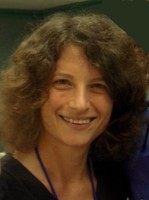Voting for facility location
Supervisor
Suitable for
Abstract
Description: suppose that people living in a given geographic area would like to decide where to place a certain facility (say, a library or a gas station). There are several possible locations, and each person prefers to have the facility as close to them as possible. However, the central planner, who will make the final decision, does not know the voters' location, and, moreover, for various reasons (such as privacy or the design of the voting machine), the voters cannot communicate their location. Instead, they communicate their ranking over the available locations, ranking them from the closest one to the one that is furthest away. The central planner then applies a fixed voting rule to these rankings. The quality of each location is determined by the sum of distances from it to all voters, or alternatively the maximum distance. A research question that has recently received a substantial amount of attention is whether classic voting rules tend to produce good-quality solutions in this setting.The goal of the project would be to empirically evaluate various voting rules with respect to this measure, both for single-winner rules and for multi-winner rules (where more than one facility can be opened). In addition to purely empirical work, there are interesting theoretical questions that one could explore, such as proving worst-case upper and lower bounds of the performance of various rules.
Prerequisites: basic programming skills.

